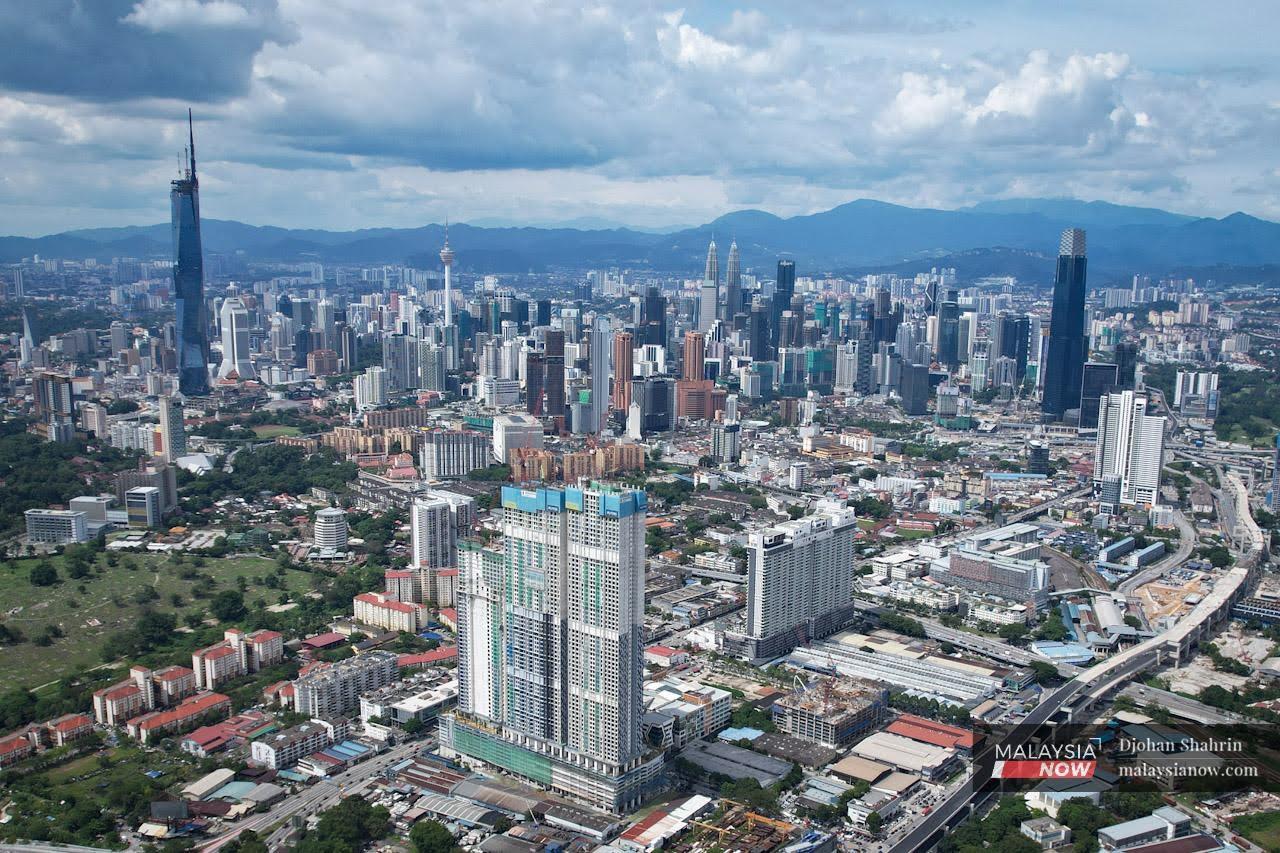Is Malaysia really a failed state?
It would be simplistic to compare Malaysia's situation with that of Sri Lanka.
Just In
As a result of corruption and economic mismanagement, Sri Lanka is now on the brink of bankruptcy, affecting millions of citizens in the island nation.
They are now facing fuel and food shortages, rampant inflation and endless political turmoil.
Taking advantage of what is happening in Sri Lanka, a supposedly retired political figure, Lim Kit Siang, has made a statement that Malaysia might follow Sri Lanka’s footsteps by the year 2057.
This unwarranted statement is not his first.
On May 29, 2010, Lim, who was then DAP adviser was adamant that Malaysians needed to replace the government of the day otherwise the nation would face bankruptcy like that of Greece.
He also made a similar statement in 2016 that Malaysia was failing. During the peak of the war against Covid-19 in July 2021, he made yet another statement that Malaysia was stumbling down the road of a failed state.
This “failed state” extravaganza was also propagated by his son, Lim Guan Eng, who was once Malaysia’s finance minister for 22 months. Ironically, their prayers were answered as the ruling Pakatan Harapan (PH) thereafter miserably failed.
Notwithstanding these nasty remarks, former prime minister Dr Mahathir Mohamad himself claimed that Malaysia had savings amounting to RM2 trillion before he resigned voluntarily in early 2020.
Let us analyse whether or not Malaysia is in fact a failed state.
A failed state is a nation in anarchy with a dysfunctional healthcare system, extremely corrupt government agencies, dilapidated public infrastructure and a very low rank on the human development index (HDI). Malaysia has none of these qualities.
If Malaysia really is failing, the majority of its citizens would have plunged into poverty like that of Venezuela, Zimbabwe and Sri Lanka.
In contrast, the United Nations Development Program reported in 2021 that Malaysia has a very high HDI, on par with other developed states. Malaysia is acknowledged as a “stable” nation according to the 2021 Fragile State Index published by Foreign Policy.
In addition, the 2021 Global Peace Index placed Malaysia as the 23rd most peaceful nation on Earth, outdoing other developed European nations like Spain, the UK and Italy.
Unlike Sri Lankans, Malaysians do not face frequent power cuts. Malaysians can also refuel their vehicles and buy groceries without having to wait in long queues.
According to WION, food prices have skyrocketed in Sri Lanka. For instance, the price of rice, Sri Lanka’s staple food, has gone up 93% while the price of chicken has soared 55%. Foodstuffs are no longer affordable for most Sri Lankans.
Due to the incredibly high inflation rate, the huge pile of debts, bleeding foreign reserves and tanking currency, Sri Lanka is now facing its worst economic crisis since independence.
By March 2022, Sri Lanka only had offical reserves of about US$1.94 billion, a little over the net worth of Kylie Jenner, the 24-year-old American model. While Jenner’s wealth is totally at her disposal, Sri Lanka has to feed its 20 million people, provide security and repay its loans.
In comparison, Malaysia’s official reserves stood at US$111.06 billion as reported by The Star in August 2021.
In April, Fitch Ratings affirmed Malaysia’s long-term foreign currency issuer default rating (IDR) at “BBB+” with a stable outlook. Sri Lanka, meanwhile, was rated “C” which means that it has very high credit risks.
Ultimately, Sri Lanka announced that it has failed to service its debt totalling US$51 billion. Colombo needs US$20 billion to import necessities for its people.
In contrast, Malaysia’s economic stability can be seen in the way Malaysians have been spending. During the recent Hari Raya festivities, Malaysians of all races were freely travelling, causing massive traffic congestion on major highways.
Immigration departments nationwide were swarmed by millions of Malaysians applying for passports – if not for work, obviously for the purpose of travelling overseas.
Citizens of a failed state would certainly not be able to enjoy all these privileges.
Based on these facts, it is not too simplistic to say that these political figures are just capitalising on the sufferings of Sri Lankans to obtain political mileage to badmouth the nation.
Malaysians have given them the opportunity to administer the nation but they screwed it over after 22 months in power.
Let us move forward to build a better nation from the ruins of Covid-19.
Enough with the failed state propaganda.
The views expressed in this article are those of the author(s) and do not necessarily reflect the position of MalaysiaNow.
Subscribe to our newsletter
To be updated with all the latest news and analyses daily.
